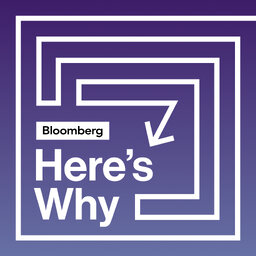Airline Mergers and Health Worker Concerns
We explore airline mergers and regulation with Bloomberg Opinion's Brooke Sutherland. We also talk about the shortage of nurses and the concern in the UK over doctors. Editor Rachel Rosenthal and columnist Therese Raphael join for those discussions. We also talk about unemployment insurance with Bloomberg's Kathryn Edwards. Amy Morris hosts.
In 1 playlist(s)
Bloomberg Opinion
Deeper conversations on the week's most significant developments. Tune in and join in!Social links
Follow podcast
Recent clips

Introducing 'Here's Why' - Complex News Stories Explained
00:30

Airline Mergers and Restaurant Loyalty
35:20

Fossil Fuel Use and Drug Development
35:28
 Bloomberg Opinion
Bloomberg Opinion